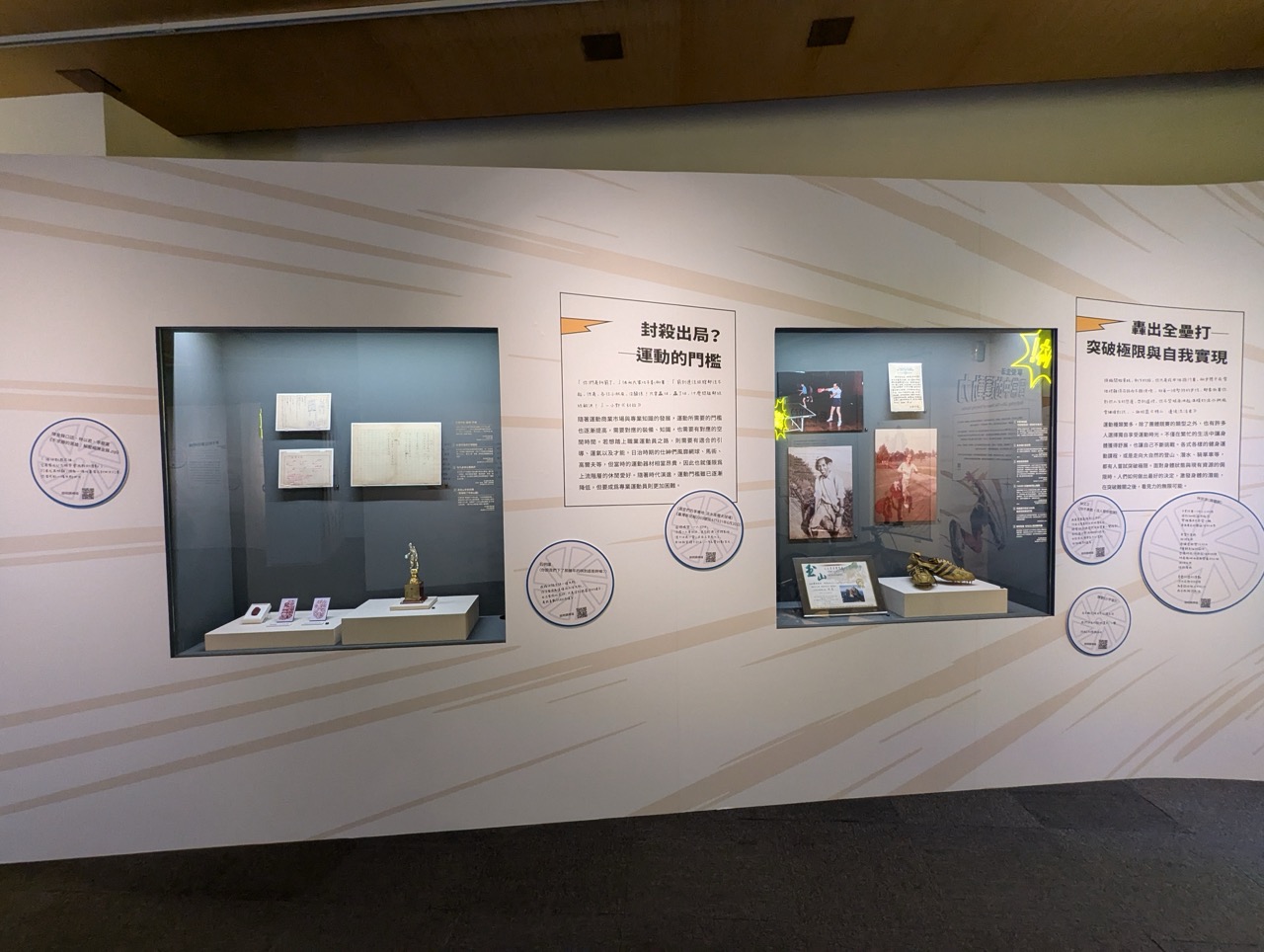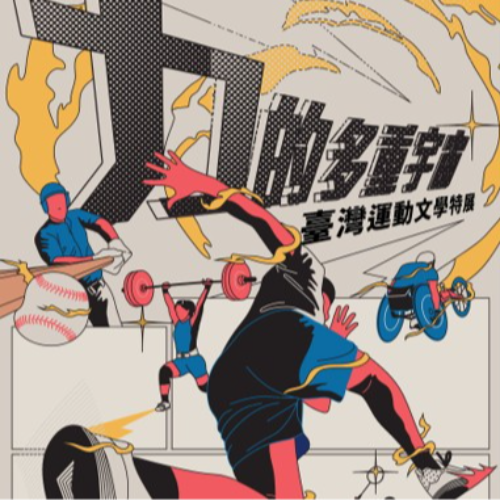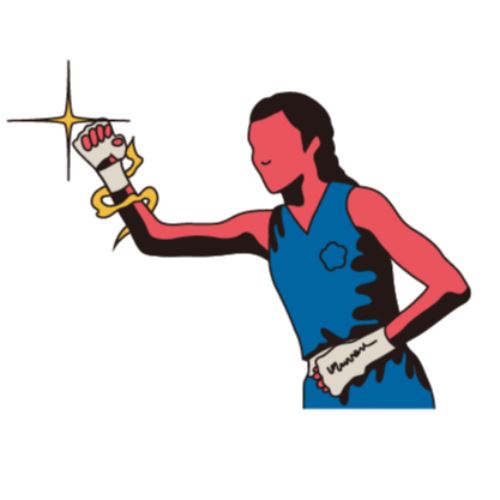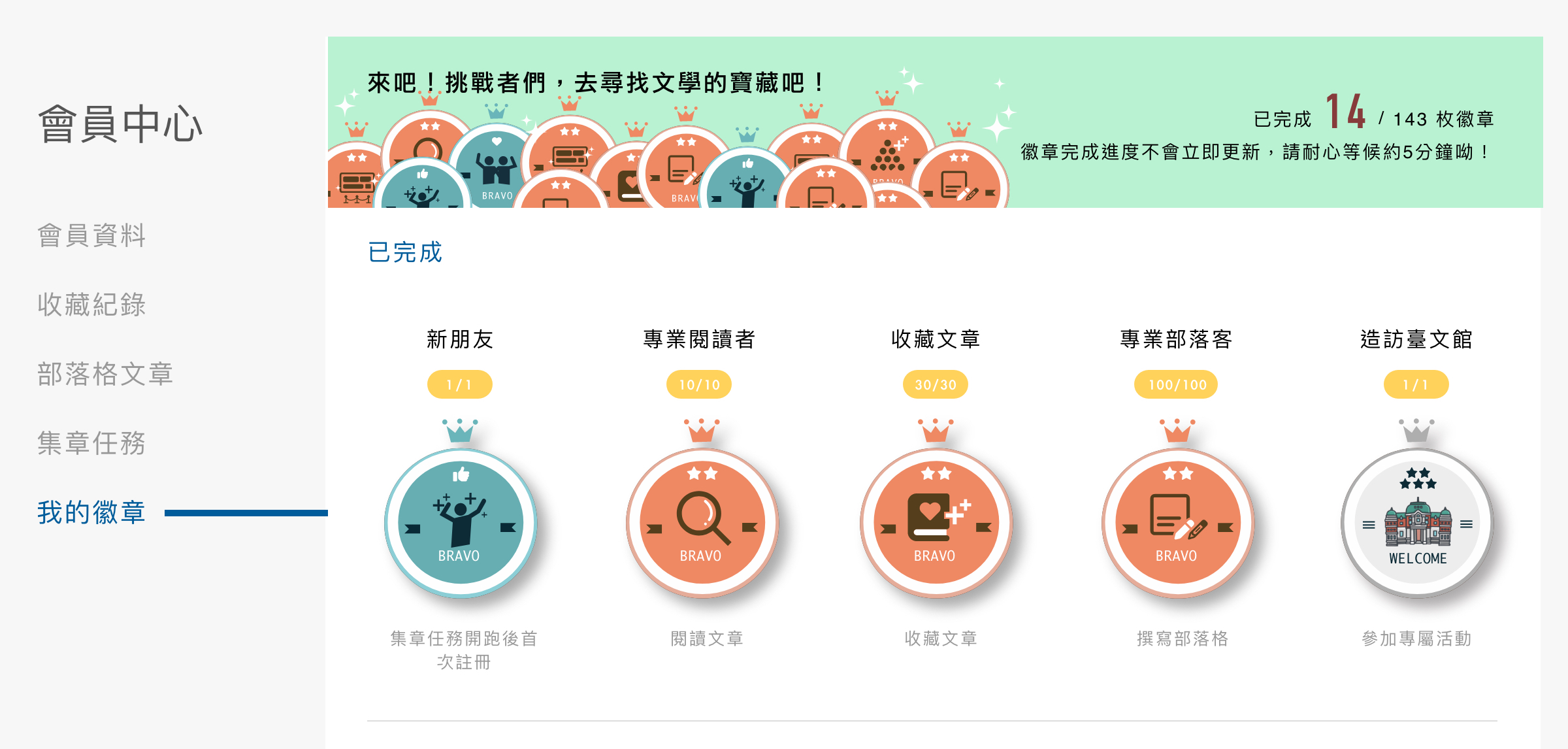Enjoying Life: The Power of Everyday Exercise
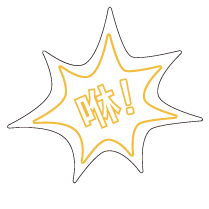
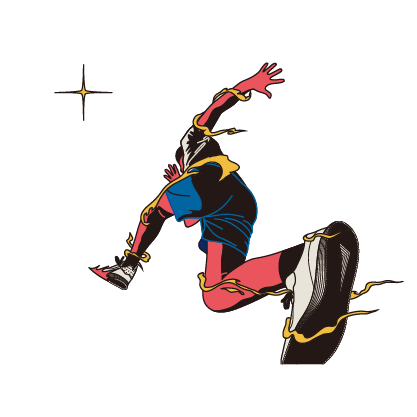
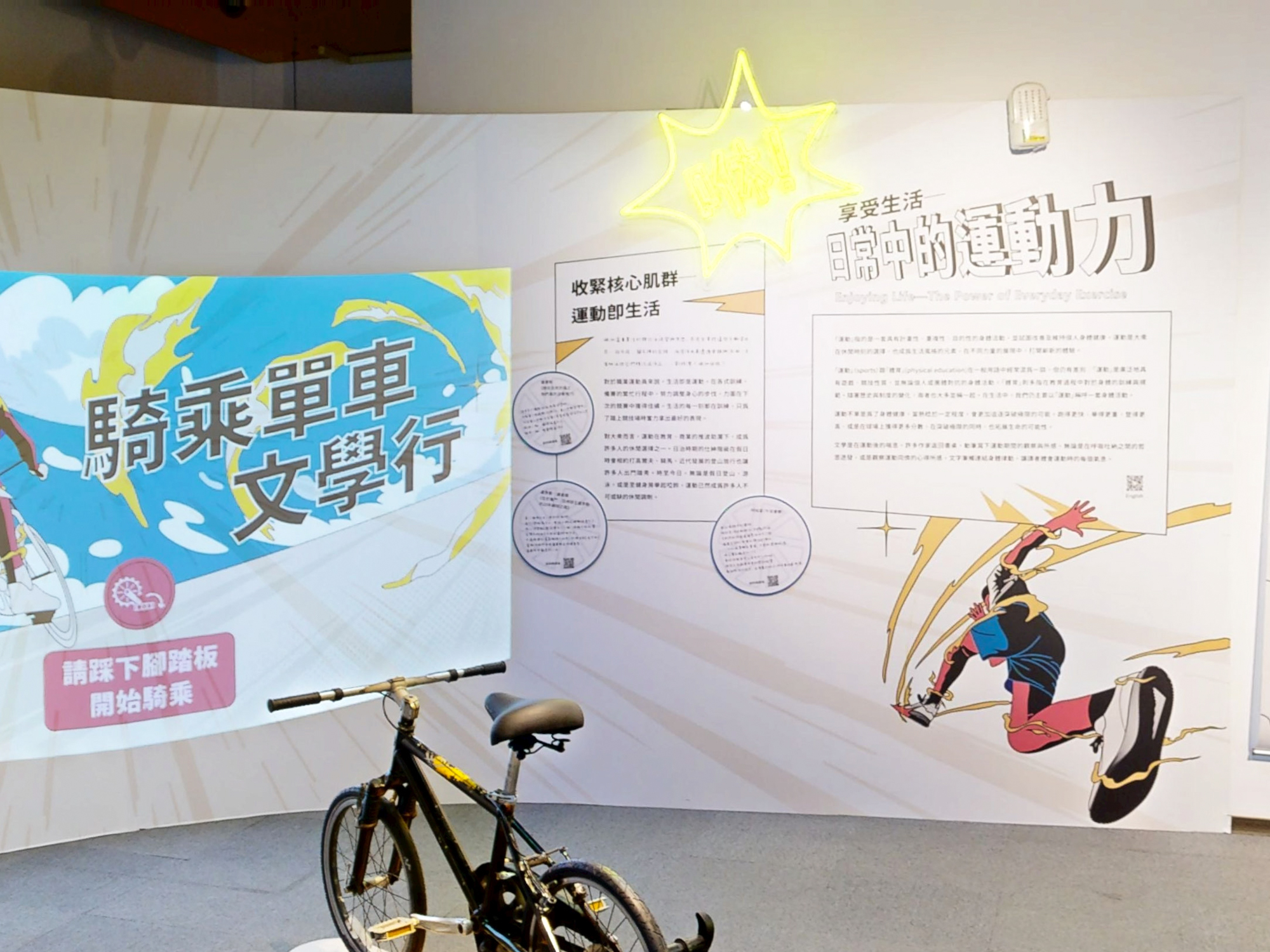
Exercise refers to a set of planned, repetitive, and intentional physical activities that aim to improve and maintain an individual's physical health. Exercise is also a popular form of leisure, and has become an important element in many people's lives, creating new experiences through diverse displays of power and strength.
The words exercise, sports, and physical education are often used interchangeably in everyday language. However, there are differences between these terms: "Sports" is a broad term that refers to games and competitive activities both individual and team-based. "Physical education" primarily refers to the training and regulation of the human body as part of an educational process. As history and society have changed, the phrases are often mentioned alongside each other. In our daily lives, we use the term “exercise” to primarily refer to sets of physical activities.
Engaging in exercise or sports may not solely be for the sake of physical health; once a person gains a certain level of skill or strength, they may try to aim higher and surpass their previous limits. They run faster, lift heavier, climb higher, or score more points—with every personal record they break, they broaden the possibilities open to them in life.
How does literature come into play? Here, literature is the breaths taken after exercising or a round of sports. Many writers return to their desk to pen down their observations and feelings in the moment. Whether it is a burst of philosophical thought between sets or insights gained from observing fellow athletes, their written words connect the body to sports and exercise, letting readers experience every inhale and exhale of those movements and matches.
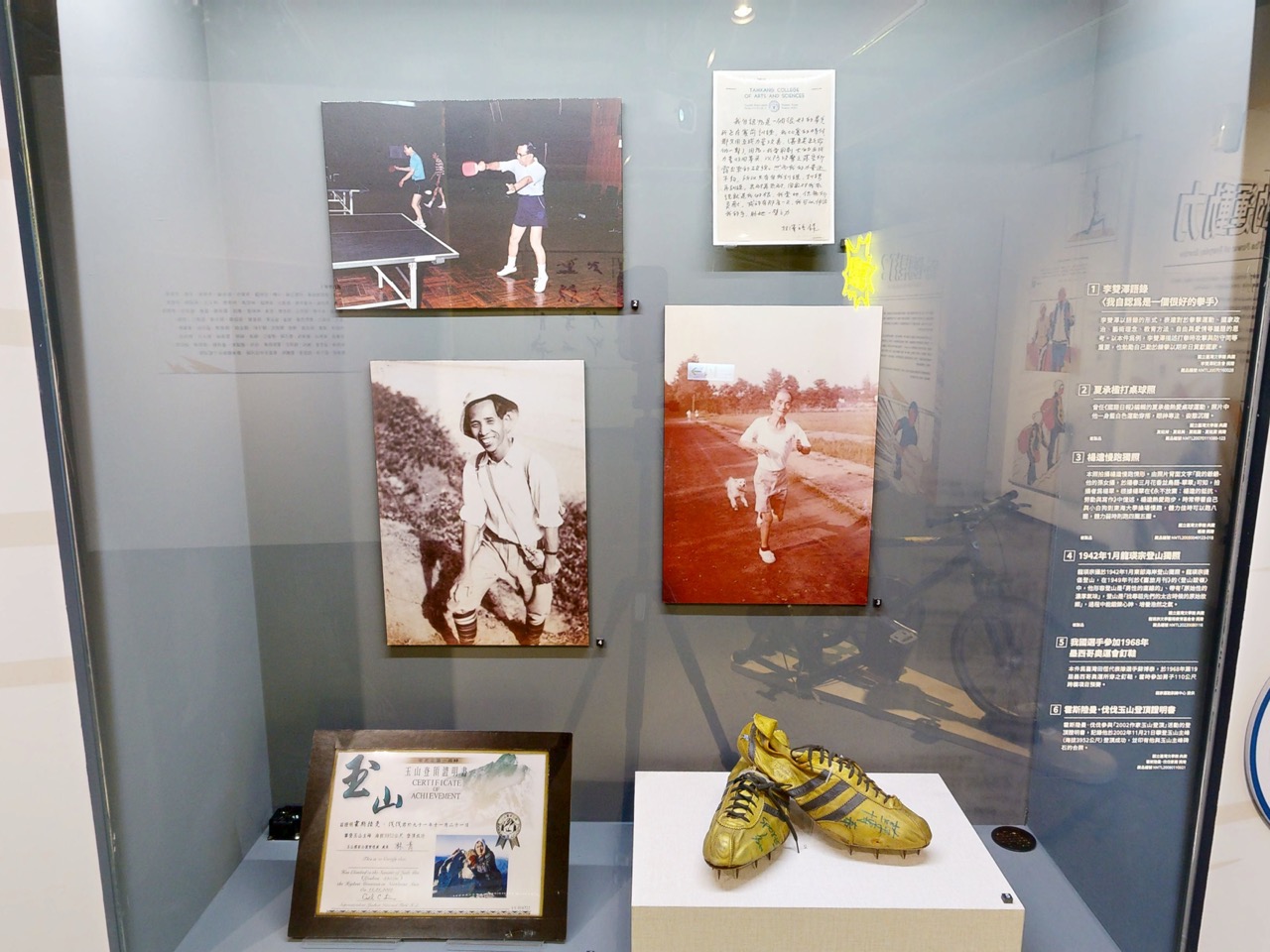
Track Spike Shoes worn by Taiwan athletes at the 1968 Mexico City Olympics
These track spikes were worn by Su Po-tai of Taiwan’s athletics team during the 19th Mexico City Olympics for the men’s 110m hurdles qualifiers in 1968.
(Courtesy of the National Sports Training Center)
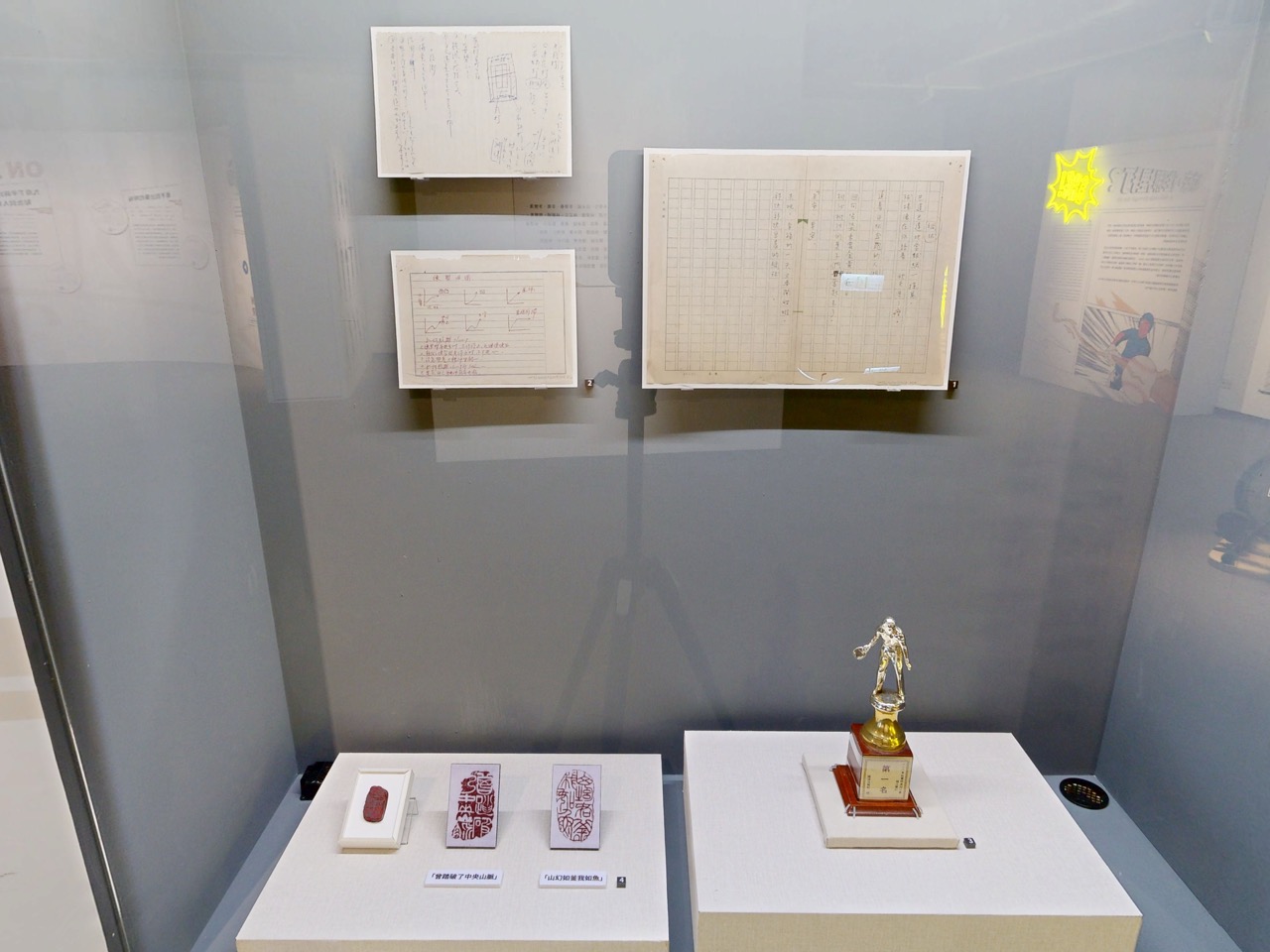
2-1 Strengthening Core Muscles: Exercise as Life
For professional athletes, exercise is life. Through busy schedules of training and preparation for competitions, they strive to adjust both body and mind, aiming to achieve good results in the next competition. Every moment of life is spent training, preparing them to give their best possible performance on the playing field.
Thanks to educational and commercial promotion, exercise has become one of many choices of leisure available to the general public. During the Japanese colonial period, the gentry would gather on holidays to play golf or ride horses, while modern hiking trips encourage people to venture outdoors. Today, whether in the form of hiking on weekends, or that of swimming or lifting weights at the gym, exercise has become an essential part of many people’s leisure activities.
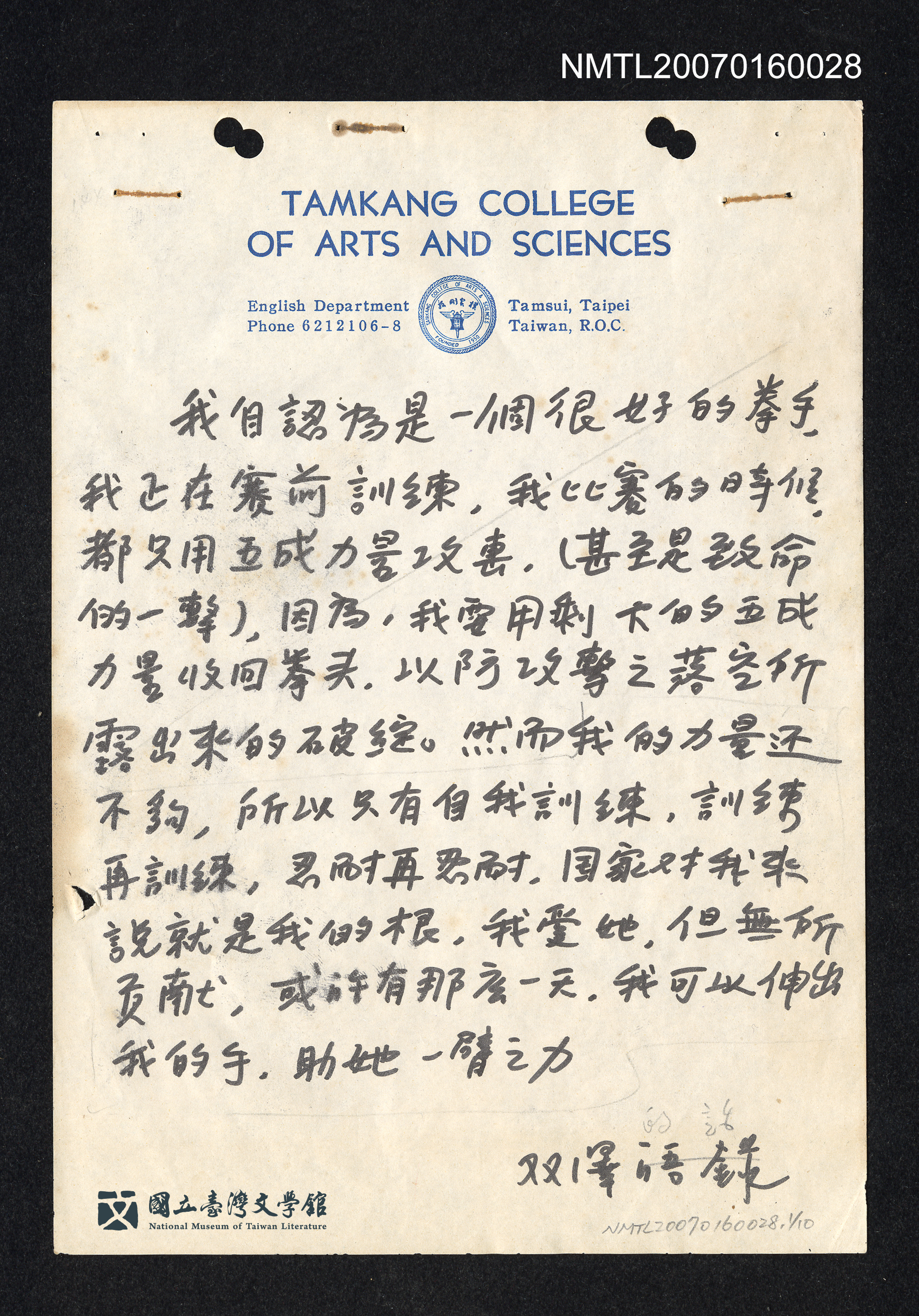
Quote by Li Shuang-tse “I Consider Myself a Good Boxer”
Li Shuang-tse expressed his thoughts on topics such as boxing, national politics,
artistic philosophy, education, freedom, and love through his quotes.
In this note, he emphasizes that offense and defense are equally important in boxing and encourages himself
to practice diligently in order to contribute to his country.
(Collection of the National Museum of Taiwan Literature / Donated by the Li Shuang-tse Memorial Association / Accession no. NMTL20070160028)
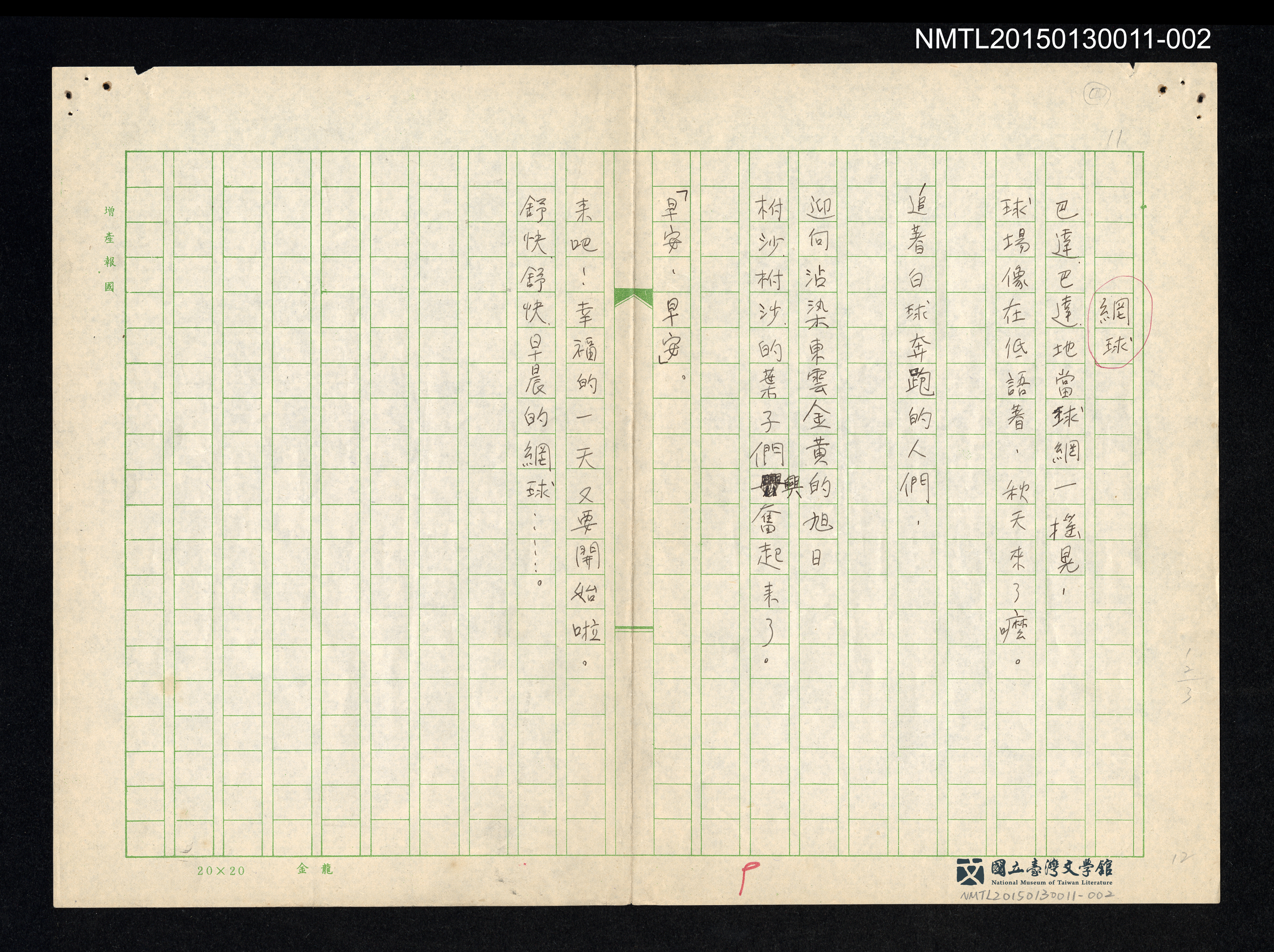
Manuscript of Dupan Fangge's "Tennis"
"Tennis" was included in Ching-shou, Dupan Fangge’s 1977 poetry collection.
It describes a group of people beginning a joyful, refreshing day with a game of tennis under a golden sunrise.
The sounds echoing around the court are expressed through onomatopoeia: "bada bada," "fu sha fu sha," "good morning, good morning."
(Collection of the National Museum of Taiwan Literature / Donated by Dupan Fangge / Accession no. NMTL20150130011-002)
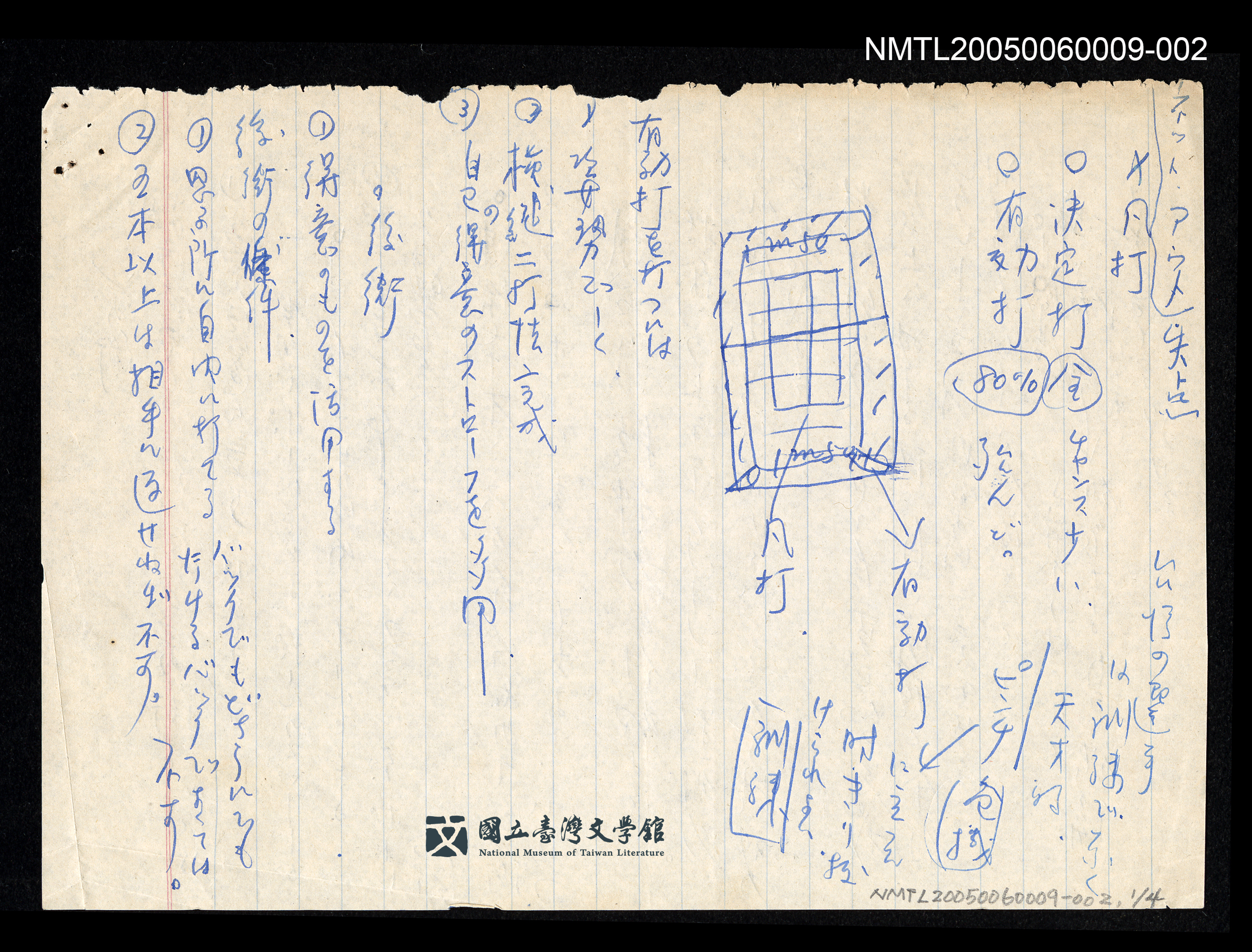
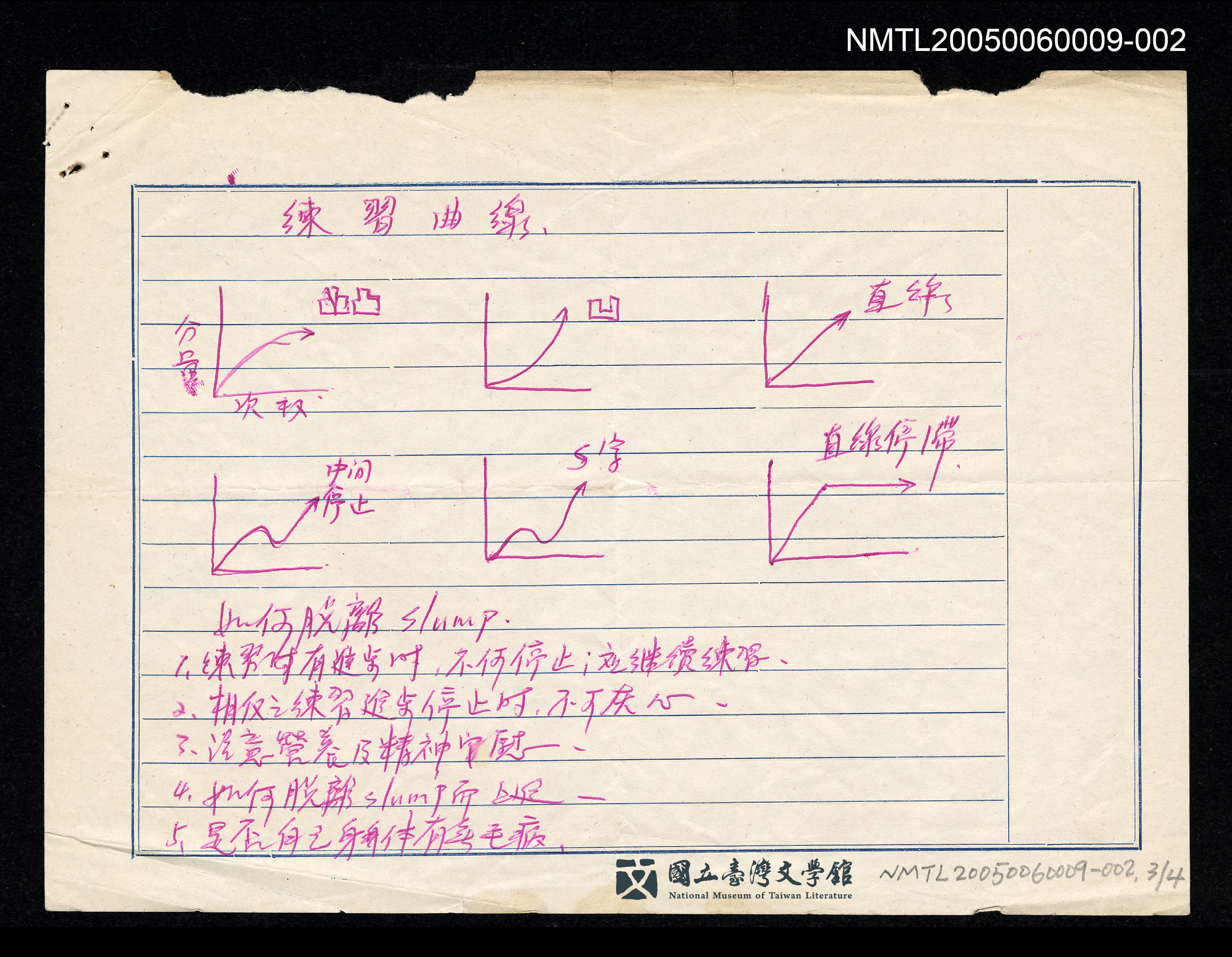
Dupan Fangge’s Notes on Tennis
These notes by Dupan Fangge detail the rules of tennis, written in a mixture of Chinese and Japanese.
They illustrate six practice curves and include strategies for overcoming slumps,
and address mental, nutritional, spiritual, and physical aspects of the game.
(Collection of the National Museum of Taiwan Literature / Donated by Dupan Fangge. /Accession no. NMTL20050060009-002)
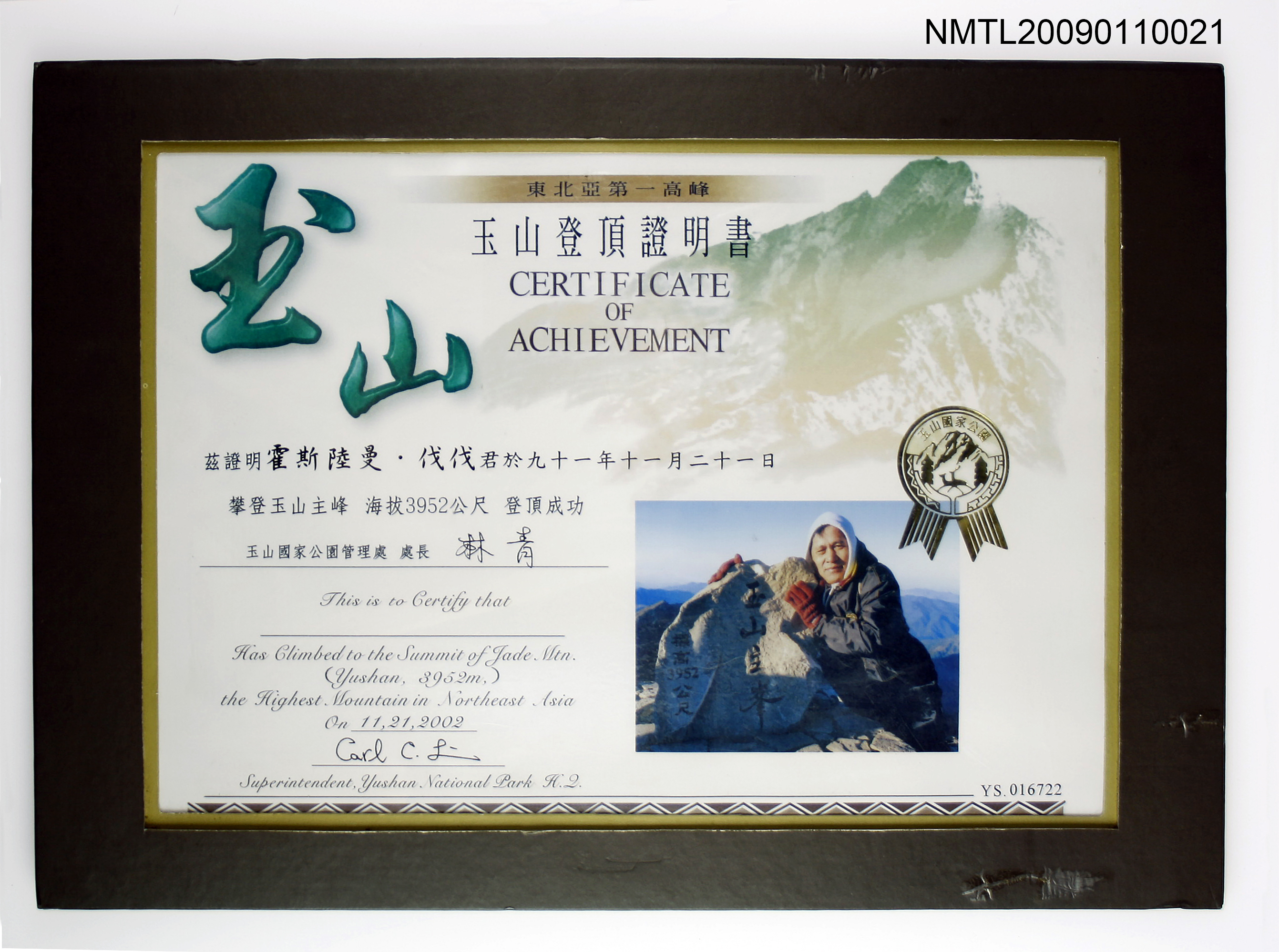
Husluman Vava Yushan Summit Certificate
This document certifies Husluman Vava’s successful ascent of Yushan’s main peak (3,952 m)
on November 21, 2002, as part of the "2002 Yushan Writers' Climb" activity. It includes a photo of him with the monument on the summit.
(Collection of the National Museum of Taiwan Literature / Donated by the family of Husluman Vava / Accession no. NMTL20090110021)
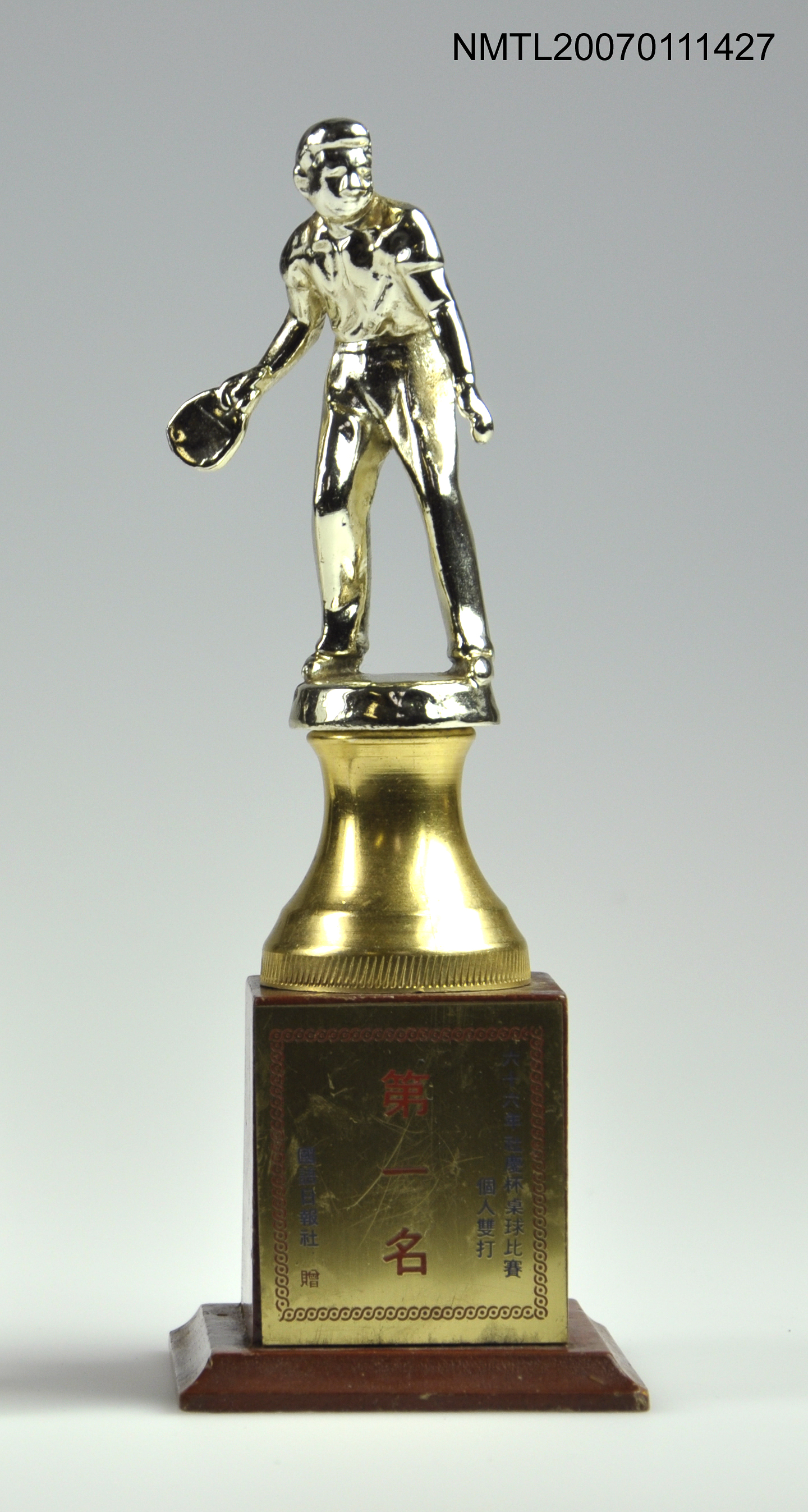
Ho Fan's Table Tennis Trophy
This trophy was awarded for first place in the doubles table tennis competition at the 1977 Mandarin Daily News' company celebration.
Hsia Cheng-ying, a sports enthusiast, avid skater and table tennis, volleyball,
and billiards player, organized the Mandarin Cup Table Tennis Tournament during his tenure at the Mandarin Daily News.
(Collection of the National Museum of Taiwan Literature / Donated by Hsia Tsu-cho, Hsia Tsu-mei, Hsia Tsu-li, Hsia Tsu-wei / Accession no. NMTL20070111427)
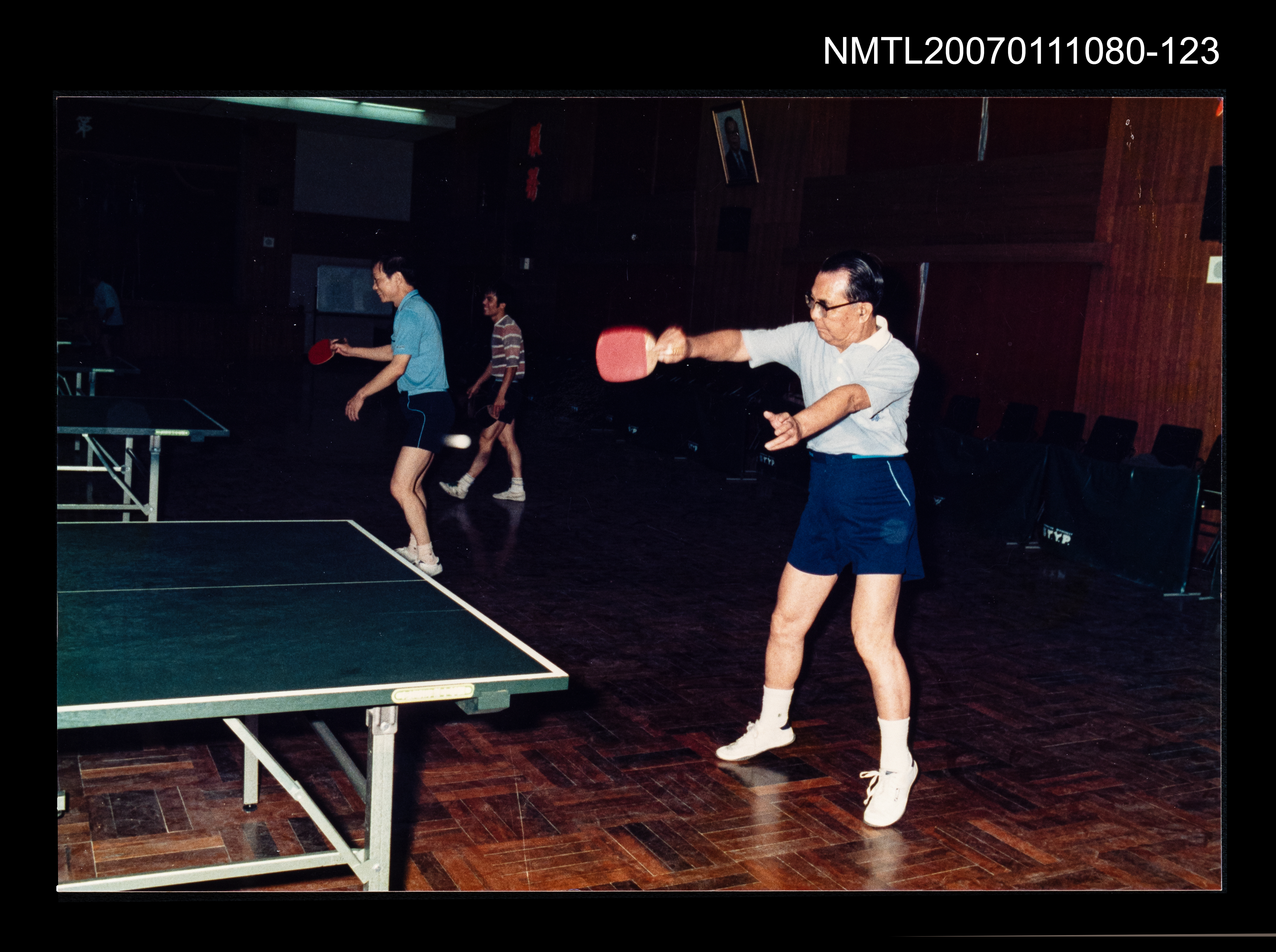
Photo of Hsia Cheng-ying Playing Table Tennis
Hsia Cheng-ying, a former editor of Mandarin Daily News, loved table tennis.
In this photo, he is wearing a blue-and-white sports outfit, eyes focused and posture steady.
(Collection of the National Museum of Taiwan Literature / Donated by Hsia Tsu-cho, Hsia Tsu-mei, Hsia Tsu-li, Hsia Tsu-wei / Replica, accession no. NMTL20070111080-123)
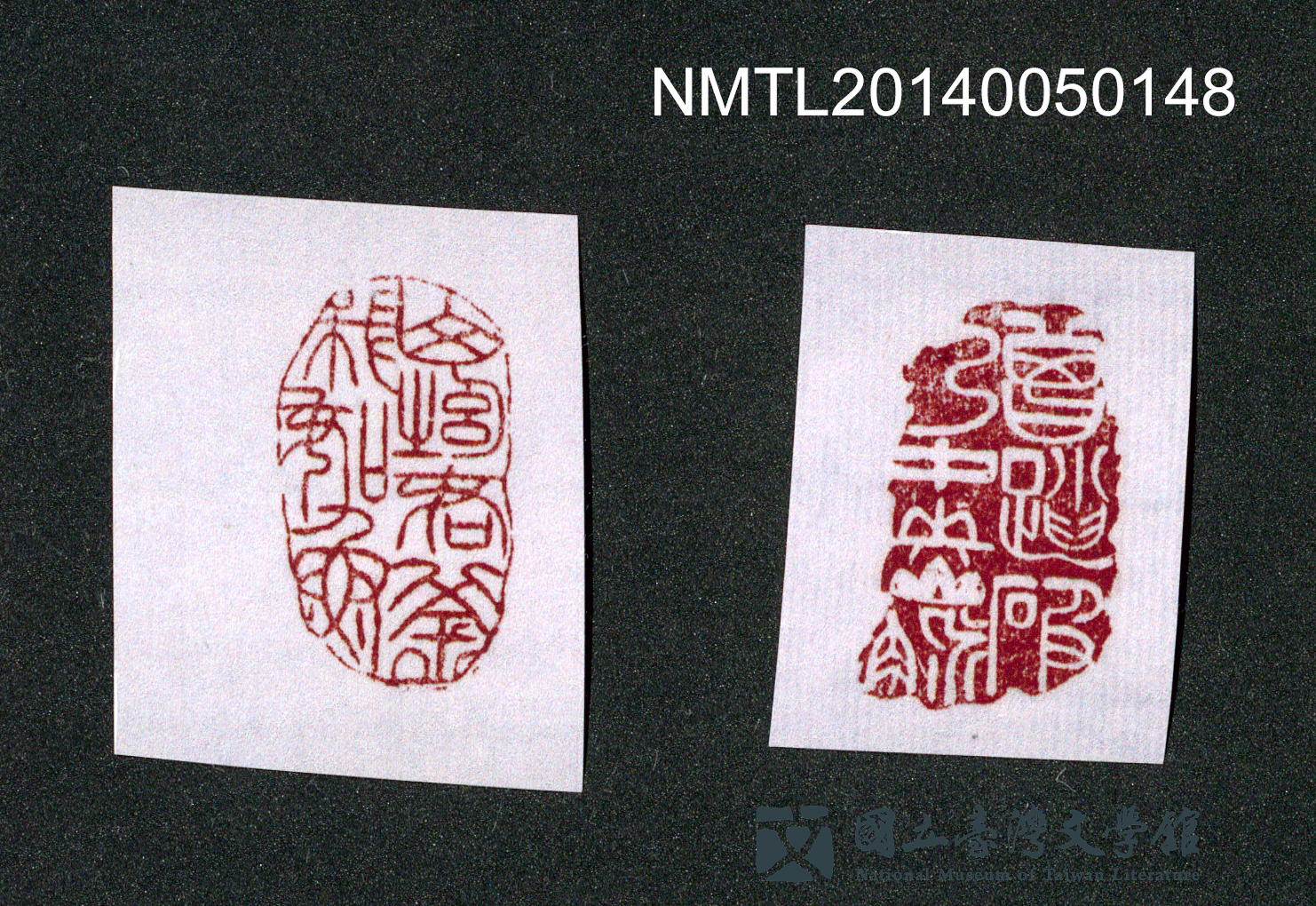
Chou Ting-shan's Hand-Carved Seal: "I Have Traversed the Central Mountain Range"
The seal is engraved with "I have traversed the Central Mountain Range" and "Mountains are like cauldrons,
I am like a fish," reflecting Chou Ting-shan’s climbing experiences. He traveled the Central Mountain Range for the first time in 1941,
and subsequently composed over forty poems, including "Central Mountain Range Travel Poem," "Songs of the Central Mountain Range,"
and "Further Travel in the Central Mountain Range."
(Collection of the National Museum of Taiwan Literature / Donated by the family of Chou Ting-shan / Accession no. NMTL20140050148)
2-2 Hitting a Home Run: Breaking Limits and Achieving Self-Realization
There are many types of exercise. Outside of team sports, many choose to enjoy physical activity alone. More than just allowing the body to stretch its muscles amidst a busy life, these offer constant personal challenges. Various fitness classes and outdoor activities like hiking, diving, and cycling all push individuals to test their limits. Faced with the limitations of their physical condition and resources, everyone must decide how to make the most of what they have. When they push past their limits,
they see limitless possibilities of strength.
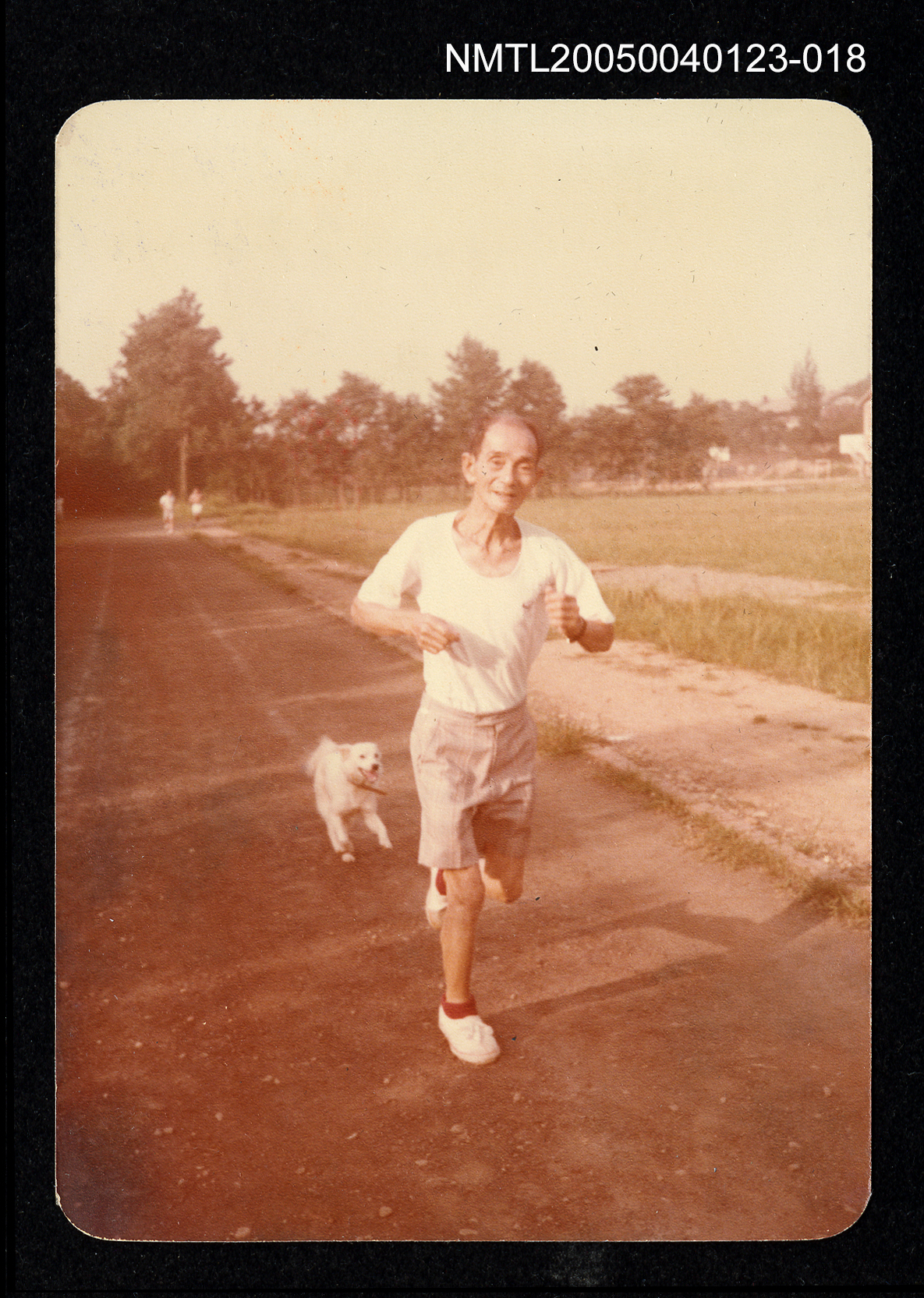
Photo of Yang Kuei Jogging
This photo captures Yang Kuei jogging.
The note on the back reads: "My grandfather - photographed by his granddaughter, during the fragrant,
birdsong-filled days of early March - Tsui Tsui," indicating that the photographer was Yang Tsui.
According to Yang Tsui’s Never Give Up: Yang Kuei’s Resistance, Labor, and Writing,
Yang Kuei loved running and often jogged with his small white dog at Tunghai University,
running eight laps when in good condition and four to five laps when fatigued.
(Collection of the National Museum of Taiwan Literature / Donated by Yang Chien / Replica, accession no. NMTL20050040123-018)
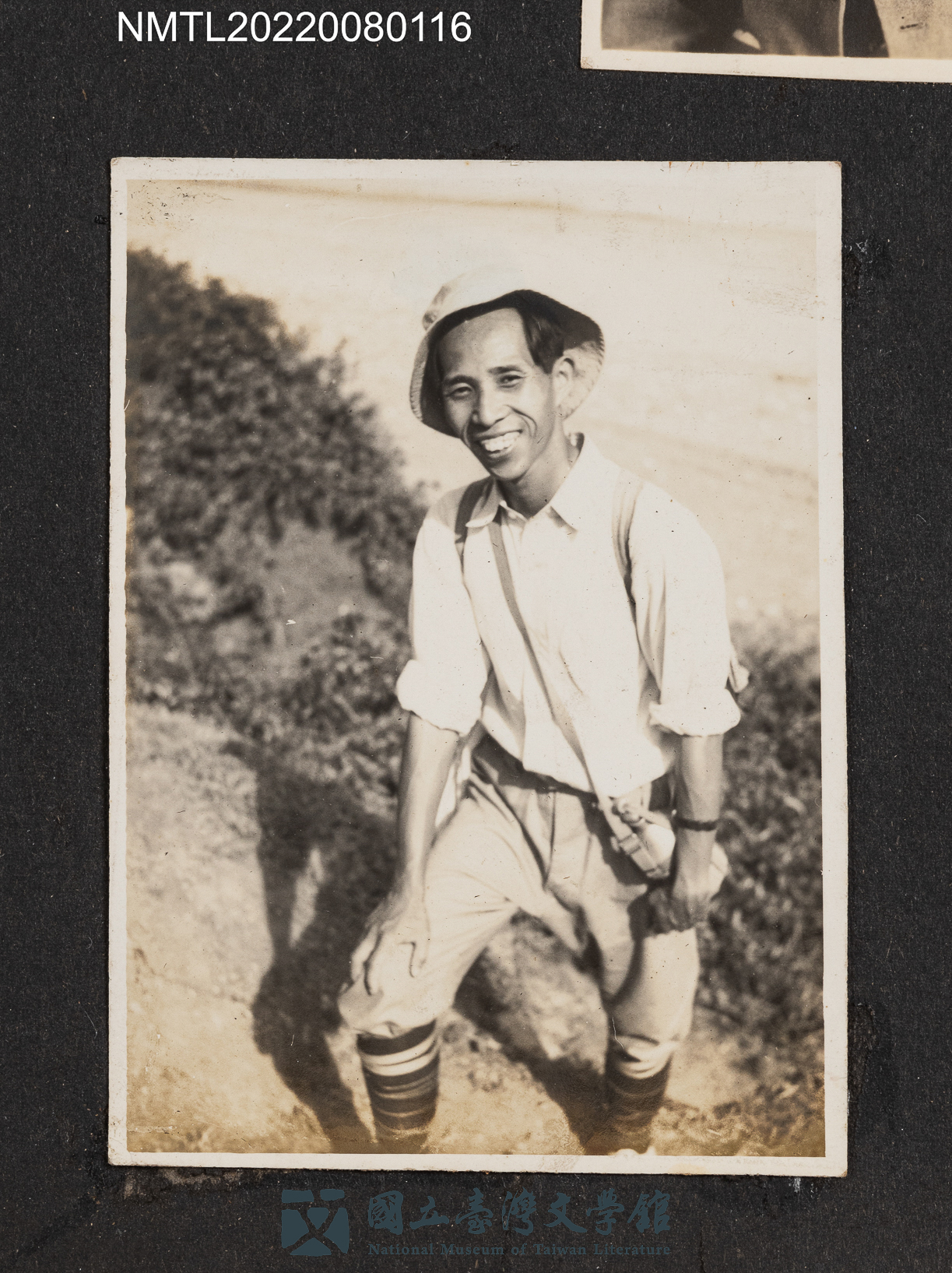
Photo of Lung Ying-tsung Climbing a Mountain, January 1942
Lung Ying-tsung, an advocate for mountaineering, was photographed solo climbing a mountain on Taiwan’s eastern coast in January 1942.
In his 1949 article"Climbing Mountains and Traversing Ridges" published inTaiwan Travel Monthly,
he described it as "a linear, masculine endeavor" with a "primitive intensity,"
and a way to cultivate strength of mind and nobility of spirit while "seeking the ancestral, primordial homeland."
(Collection of the National Museum of Taiwan Literature / Donated by the Lung Ying-tsung Literary and Arts Education Foundation / Replica, accession no. NMTL20220080116)
2-3 Out at the Plate? The Threshold of Exercise
With the growth and professionalization of the sports industry, the threshold for participation has increased, requiring appropriate equipment, knowledge, and free time. Those aspiring to become professional athletes need guidance, talent, and sometimes luck. During the Japanese colonial period, the gentry embraced tennis, equestrian sports, and golf, but expensive equipment limited these activities to the upper class. Over time, barriers to general participation have diminished, yet becoming a professional athlete is now more challenging than ever.
